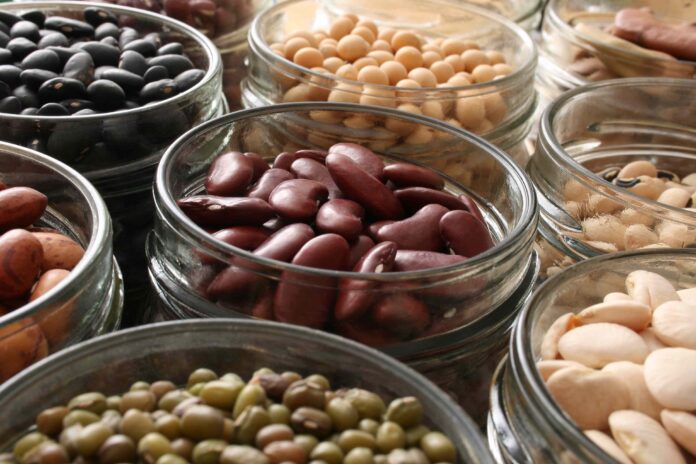Beans are a dietary cornerstone, packed with fiber, protein, and essential vitamins and minerals. Consistent bean consumption delivers measurable health improvements, from heart health and digestion to blood sugar control and iron absorption. Here’s a breakdown of what happens to your body when you make beans a regular part of your diet.
Heart Health Boost
Studies demonstrate that eating just one cup of beans daily can significantly reduce your risk of cardiovascular disease. Beans contain less saturated fat than many other protein sources, like red meat, and help lower cholesterol. The plant compound saponin, found in beans and other legumes, aids efficient cholesterol processing. The fiber in beans further contributes to heart health by lowering cholesterol levels.
Improved Digestive Regularity
Beans are a phenomenal source of fiber, promoting regular bowel movements and preventing constipation. Soluble fiber in beans helps manage diarrhea by slowing digestion when needed. The resistant starch in beans ferments in the large intestine, nourishing beneficial gut bacteria and fatty acids, which supports overall digestive health.
Stabilized Blood Sugar Control
The protein, fiber, and resistant starch in beans slow sugar absorption, helping regulate blood sugar levels. With a low glycemic index, beans have minimal impact on blood sugar spikes. The mineral magnesium, abundant in beans, plays a vital role in blood sugar regulation, reducing the risk of type 2 diabetes. One study showed that consuming one cup of beans daily improved blood sugar control over two to three months.
Enhanced Iron Absorption
Beans are a sustainable, plant-based protein source, especially valuable for vegans and vegetarians. A half-cup serving provides around 2 milligrams of iron, 11% of the Daily Value. Iron deficiency can cause fatigue, digestive discomfort, and concentration problems. Iron helps produce hemoglobin, which carries oxygen throughout the body. Pairing beans with vitamin C-rich foods like peppers, broccoli, and potatoes enhances iron absorption.
Nutritional Profile: Beans by the Numbers
Beans come in countless varieties—black, pinto, lima, garbanzo—each offering unique micronutrients like potassium, folate, and selenium.
Here’s a snapshot of a half-cup serving of canned black beans:
- Calories: 109
- Fat: 0.3g
- Sodium: 165mg (7% DV)
- Carbohydrates: 20g
- Fiber: 8g (30% DV)
- Added Sugars: 0g
- Protein: 7g
- Iron: 2.3mg (11% DV)
- Magnesium: 42mg (10% DV)
- Folate: 73mcg (18% DV)
Canned beans are convenient but tend to have higher sodium content. Rinsing canned beans reduces sodium intake.
Potential Risks and How to Manage Them
Most beans contain oligosaccharides, making them high-FODMAP foods. FODMAPs are poorly absorbed carbohydrates that can cause bloating and gas, especially in people with irritable bowel syndrome (IBS). Soaking, boiling, and draining beans can reduce oligosaccharide content. If you experience discomfort, reduce bean intake or consult a healthcare provider.
Practical Tips for Incorporating Beans
The Dietary Guidelines for Americans recommend 1.5 cups of beans, peas, and lentils per week.
Here are some easy ways to add more beans to your diet:
- Add beans to soups, salads, and stews.
- Use mashed beans as a healthy spread.
- Replace meat with beans in tacos and chili.
- Snack on roasted chickpeas.
Conclusion:
Regular bean consumption offers a wealth of health benefits, from improved heart health and digestion to better blood sugar control and iron absorption. While some individuals may experience digestive discomfort, simple preparation methods can mitigate these effects. By incorporating beans into your diet, you can harness their nutritional power for long-term well-being



















